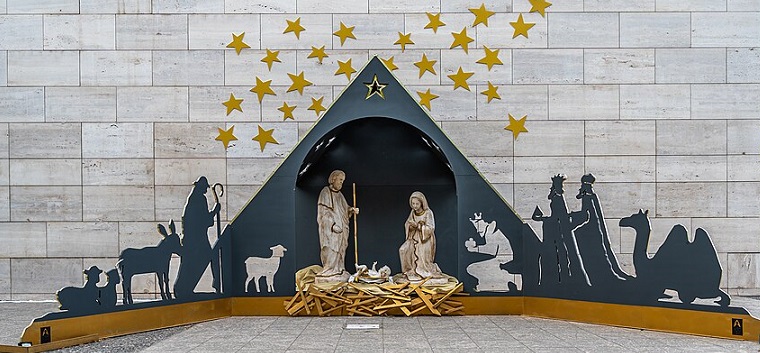Three Kings Day has passed, the day children wait all year to receive a present. But in this year 2024 too many Argentine children were left without presents: in the last 30 days sales in toy shops and related stores fell by 12%. This was double the drop suffered a few days earlier, at Christmas.
Games and toys account for more than 80% of gifts for children under 6 years old. In the chains, where 70% of the toys are imported, the average purchase was 16 dollars… in other words, cheap toys, to meet the Three Wise Men at the time of the elitist libertarian chainsaws.
No longer surprising. 24 hours after the ultra-right Javier Milei took office, there was a rapid rise in prices, up to 100%, and the markets reacted calmly. Trade unions and social movements warn that the chosen course will ruin Argentines, but for them, the incoming government has prepared a good repression.
In December, food prices rose by 32.5 percent. Added to the rises in fuel and prepayments and the announced increases in transport, this has raised social unrest: in less than four weeks the president’s negative image has risen from 50.1 per cent to 55.5 per cent.
The price of meat, once the staple food, has risen by more than 50 per cent, urban and suburban transport fares by 45 per cent, while the price of international airline tickets has doubled (it is no longer a solution to leave the country, unless you “inherit” the price of the ticket from a relative).
Speculation is total and there are still businesses that do not sell because they are updating prices, a task that is becoming a daily routine, while others warn that today’s budget is not valid for tomorrow.
Prepaid medicine companies have confirmed an increase of around 40% in the value of their premiums as of January, with increases that will continue month by month. Today it is cheaper to die. Different chambers and entities that belong to privately managed educational institutions estimate that fee increases for 2024 will be around 50%.
The Argentine government repealed the Rent Law, which updated the value according to the inflation index, through the mega-decree announced by Javier Milei. According to this calculation, which takes into account the variation of inflation and salaries, the increase will be 137.5%. In this way, a rent of the equivalent of 100 dollars will have a value of 237,500 during the next 12 months.
Prices are rising as you walk
In this Argentina, where the ‘mileinista’ acolytes repeat the mantra of ¡Viva la libertad, carajo! anything goes. Of course, if it is against the worker, against that middle class that is in the process of extinction, against the defenceless. As an ordinary citizen, one has to be alert to detect sudden price changes and something illegal in supermarkets: prices at the checkout that do not coincide with those published on the shelves.
In other words, you go to a supermarket shelf and see the price of, say, rice, you do the calculation if you have the funds to buy a kilo… but when you get to the checkout you find that the price of the product has already increased. They say that whoever comes across this has the law on their side (at least, for now): they must be charged the price displayed on the shelf. This goes from hyperinflation to delinquency.
What’s more: it goes up, everything goes up (except people’s mood). In Argentina, since the inauguration of the new ultra-right government, medicines have increased by an average of 90%, a figure similar to the growth of the general moodiness.
These days, the pots and pans have left the kitchens and are once again being heard in Buenos Aires and other cities in the country, opening the way for the organisation of neighbourhood assemblies that are timidly beginning to take shape in different neighbourhoods. A traditional method of popular struggles, repeated in the outbreak of 2001, which they could not take away (for now) from the people and which is once again coming to the fore.
Despairing faces in every corner of Argentina. Perhaps not as much as that of hundreds of men, women and children, evicted, but who were once workers or peasants, who live and spend the night in the city squares (where they sleep, eat and bathe in the fountains), take shelter at night in the banks’ ATMs, or take advantage of the roofs of the parapets of large buildings, before the total disregard and disinterest of those who govern.
Long faces of the children who waited a long year to receive their gift of kings, in their little shoes, in their espadrilles, next to the water they left for the camels. Long faces because the reality of the vast majority had nothing to do with their requests, based on the great “offers” on television, radio, and the internet. The Three Wise Men – Melchior, Gaspar, and Balthasar, so called only in the Middle Ages – did not reach many of their destinations in Argentina.
The Gospel tells us that some magi – in those days they were synonymous with astrologers – arrived from the East and were guided by a star to worship the King of the Jews who had just been born. On hearing this news, Herod the Great, the king of Judea, made them promise that once they had found the child, they would tell him so that he could worship him too.
The Magi found the child in a stable in Bethlehem, together with Mary and Joseph, and offered him gold, frankincense, and myrrh, but were warned by an angel not to return to Herod’s palace, as Herod wanted only to end the child’s life.
The Gospel says nothing about what Mary and Joseph did with the gold, frankincense and myrrh, nor does it say anything about a chainsaw, but Herod is close by.










